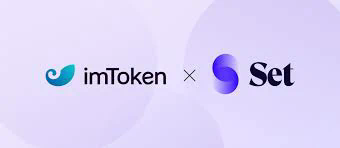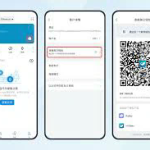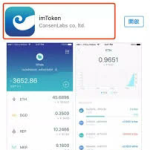# Understanding Custom Tokens in Trust Wallet
## Introduction to Trust Wallet
Trust Wallet is a decentralized, multi-currency wallet that allows users to manage their cryptocurrency assets securely and conveniently. As one of the most popular wallet applications in the blockchain ecosystem, Trust Wallet supports a wide range of cryptocurrencies and tokens. This flexibility is vital for users who engage with various blockchain networks and projects. The wallet is particularly known for its user-friendly interface and strong focus on security, making it an appealing choice for both beginners and seasoned crypto investors.

## What Are Custom Tokens?
Custom tokens are unique digital assets that are created on a blockchain platform, typically following a specific set of rules or standards. In the context of Trust Wallet, custom tokens allow users to access and manage tokens that are not typically listed on major exchanges or wallets. These tokens can represent a wide variety of assets, from utility tokens in decentralized applications (dApps) to governance tokens in decentralized finance (DeFi) platforms. Importantly, custom tokens provide an avenue for new projects to enter the market and for users to participate in a broader spectrum of cryptocurrency opportunities.
## The Importance of Custom Tokens
Custom tokens play a crucial role in the blockchain ecosystem for several reasons. Firstly, they enable tokenization within various sectors, allowing real-world assets to be represented on the blockchain. This capability opens new avenues for investment and liquidity. Secondly, custom tokens often align with specific purposes within a project, such as access to certain services, voting rights, or participation in governance, enhancing community engagement and project sustainability. Lastly, the ability to create and manage custom tokens contributes to the overall innovation within the cryptocurrency space, allowing entrepreneurs and developers to experiment with new economic models.
## Trust Wallet’s Support for Custom Tokens
Trust Wallet’s ability to support custom tokens is one of its key features. Users can seamlessly manage both standard cryptocurrencies and custom tokens within the same application. This feature encourages users to explore emerging projects and participate in decentralized finance ecosystems. Trust Wallet simplifies the process of adding custom tokens by allowing users to manually input token details, such as the contract address, symbol, and decimal places, thereby enabling broader access to a variety of assets.
## How to Add Custom Tokens in Trust Wallet
Adding custom tokens to Trust Wallet is a straightforward process. Here are the steps involved:
1. **Open Trust Wallet**: Begin by launching the Trust Wallet application on your device.
2. **Access the Tokens Section**: Navigate to the ‘Tokens’ tab located at the bottom of the interface.
3. **Add Custom Token**: Click on “Add Token” and then select “Custom Token.”
4. **Input Token Details**: Enter the token’s contract address, name, symbol, and decimals. This information can often be found on the project’s official website or reputable token listing services.
5. **Confirm and Save**: After entering the details, confirm and save. The custom token will now appear in your wallet for management.
## Exploring Ethereum-based Tokens
A significant number of custom tokens are based on the Ethereum blockchain, adhering to standards such as ERC-20 or ERC-721. ERC-20 tokens, for instance, are fungible and widely used for various applications, including utility and security tokens. ERC-721 tokens, on the other hand, represent unique assets, commonly used in non-fungible token (NFT) markets. Trust Wallet supports both types, facilitating a broad spectrum of use cases from gaming to decentralized finance.

## The Role of Custom Tokens in DeFi
Decentralized Finance (DeFi) is one of the most vibrant sectors in the cryptocurrency space, and custom tokens play a central role in its operation. DeFi projects often issue their tokens as a means of governance, reward distribution, or liquidity provision. For example, users can earn custom tokens by providing liquidity to decentralized exchanges, participating in yield farming, or engaging in staking activities. These tokens often come with incentives, making them attractive to users looking to maximize their returns.
## Risks Associated with Custom Tokens
While custom tokens offer exciting opportunities, they are also accompanied by significant risks. One major concern is the volatility associated with newly launched tokens, which can lead to substantial financial loss. Furthermore, many custom tokens are not regulated or audited, making them susceptible to scams and fraudulent schemes. It is essential for users to conduct thorough research, assessing the project’s credibility, the team behind it, and its long-term viability before investing in custom tokens.
## Understanding Token Standards and Their Implications
Token standards, such as ERC-20 and ERC-721, provide frameworks for the creation of tokens on a blockchain. Each standard comes with its set of rules, influencing how tokens function and interact with decentralized applications. For instance, while ERC-20 tokens are fungible and interchangeable, ERC-721 tokens are designed to be unique and non-divisible. Trust Wallet accommodates these standards, allowing users to engage with a diverse array of tokens, each serving different functionalities within its respective ecosystem.
## Interacting with Custom Tokens
Interacting with custom tokens on Trust Wallet is not limited to holding and trading. Users can also send, receive, and exchange tokens directly within the wallet. Trust Wallet integrates with various decentralized exchanges (DEXs), enabling users to swap custom tokens without needing to exit the app. This capability enhances user convenience and contributes to the liquidity of custom tokens by facilitating trading without the need for an intermediary.
## Security Considerations for Custom Tokens
Security is a paramount concern in the cryptocurrency space, especially for custom tokens. Users must exercise caution when adding custom tokens to their wallets. Trust Wallet employs a non-custodial model, meaning that users retain control over their private keys. This structure enhances security, but users must ensure they engage with secure and trusted sources when acquiring token details. Additionally, following best practices, such as enabling two-factor authentication and keeping wallet software updated, can further protect users from potential threats.
## The Future of Custom Tokens
The future of custom tokens appears promising as the blockchain industry continues to evolve. Increased adoption of decentralized applications and platforms is likely to spur the creation of new tokens that cater to diverse use cases. Additionally, advancements in technology may lead to enhanced token standards, providing developers with new opportunities to innovate. As the regulatory landscape matures, custom tokens may also benefit from increased legitimacy, attracting more users and institutional investors to the space.
## Conclusion
Custom tokens represent a dynamic and integral aspect of the cryptocurrency ecosystem, providing opportunities for innovation, investment, and community participation. Trust Wallet’s robust support for custom tokens empowers users to explore a wide array of digital assets conveniently. However, as with any financial endeavor, participants must approach the world of custom tokens with caution, remain informed about risks, and conduct due diligence before investing in new projects. As the blockchain landscape continues to grow, the significance of custom tokens will likely increase, shaping the future of finance and technology.



